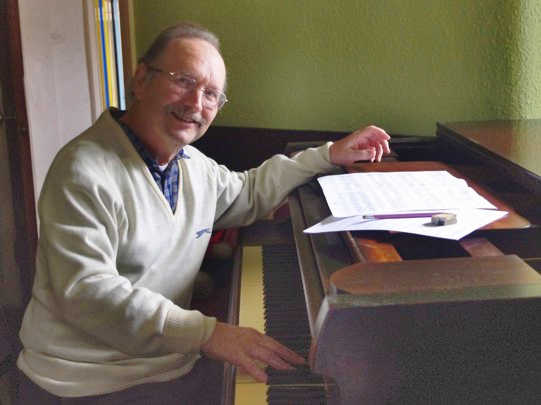Copyright in this music and these performances vests in Richard Baines.
Unauthorised copying, hiring, lending, public performance and broadcasting of these recordings is prohibited.

Here are recordings (mp3 files) in which I play eight of my piano compositions.
Celebration was composed in 2012, the year of the Queen's Diamond Jubilee and of the London Olympic Games. Something of these joyous events may be felt in the music. 'Celebration' won First Prize at the EPTA 2012 composers' competition (Teachers' category). You can read the adjudicator's comments about this and other pieces under Reviews.
Valse Mélancolique is one of a set of three pieces, the other two being a March and the Tarantella. Described by a critic as "a piece that will win many friends". It may appeal especially to those who reflect on the touch of sadness.
Burlesque amusingly features fragments of a chant, a jingle and bitonal patterns. It won for me the EPTA Frank Martin Trophy in 2009.
Romance is the most serene of my compositions. It was composed towards the end of 1979. I revised it in 2004, varying the textures and adjusting some modulations.
Toccata was composed specially for a concert at the University of Sheffield on 8th March 1980, when I performed it myself. Like the Tarantella there is a lyrical central episode framed by more brilliant outer sections.
Waltz, composed in 1995, is one of several I have written. This one is quite dreamy and wistful.
Gloria is the final movement of a set of four 'liturgical' piano pieces composed in 2010, substantially transcribed from a setting of the Latin Mass originally composed in 1981-2. The at times quite abrasive and dissonant character of the music is intended to convey a feeling of triumph and exultation overcoming evil and death.
Both the Mass and the 1980 Toccata were submiitted to the University of Sheffield as part of my folio for the degree of Master of Music.
Tarantella is a burst of cheerful optimism to round off my selection. The quiet middle section leads back into the brilliant, affirmative mood of the opening.

